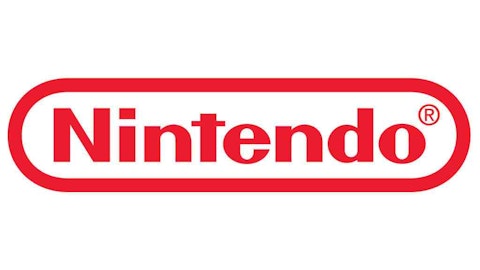
Hewlett-Packard’s low R&D spending
Hewlett-Packard Company (NYSE:HPQ) had been criticized by famous short seller Jim Chanos in the past year. Jim Chanos believes that Hewlett-Packard has practically “bought” R&D, rather than innovating in house. In the past five years, the percentage share of R&D spending of the total revenue has fluctuated in the range of 2.35% to 2.99%. In the past twelve months, Hewlett-Packard Company (NYSE:HPQ)’s R&D expenses accounted for only 2.92% of total sales.
Hewlett-Packard Company (NYSE:HPQ)’s R&D percentage share was much lower than Microsoft Corporation (NASDAQ:MSFT). Since 2008, Microsoft Corporation (NASDAQ:MSFT)’s R&D has accounted for 12.93% to 15.42% of the total revenue. In the past twelve months, Microsoft Corporation (NASDAQ:MSFT)’s R&D spending represented as much as 13.45% of the total sales. Moreover, with significant exposure to declining PC sales, Jim Chanos has targeted Hewlett-Packard as a good short position.
In contrast, GoodHaven believes that Hewlett-Packard’s business challenges are not as extreme. The low R&D expenses were due to the fact that most of its personal computer R&D was done by chipmakers and device manufacturers. Hewlett-Packard Company (NYSE:HPQ) mainly took care of design and marketing. Moreover, despite the declining trend in PCs, Hewlett-Packard’s enterprise customers are quite sticky.
Keith Trauner, co-manager of GoodHaven, commented: “When you have IT setups where changes affect thousands of devices, you don’t make changes quickly.” GoodHaven is still bullish about Hewlett-Packard going forward, with the ongoing business restructuring under the leadership of Meg Whitman. With low earnings and cash flow multiples, GoodHaven thinks that the company’s share price can move higher.
Microsoft’s strong balance sheet and the Business Division
GoodHaven was also bullish on Microsoft Corporation (NASDAQ:MSFT) because of its product portfolio restructuring. Microsoft has been refreshing several offerings including cloud, games, and software. Recently, Microsoft reported impressive full year 2013 results. Its revenue increased from $73.7 billion in fiscal 2012 to $77.8 billion in 2013, while EPS enjoyed great growth of 29%, from $2.00 per share last year to $2.58 this year.
Interestingly, when we take a closer look at its operating performance, Microsoft Corporation (NASDAQ:MSFT) derived most of its operating revenue and profit from the Microsoft Business Division. In 2013, the Business Division generated more than $24.7 billion in sales, or 31.7% of the total revenue, and $16.2 billion in operating profit, or 60.5% of the total operating profit.
Value investors would love Microsoft because of its strong balance sheet with a lot of cash on hand, cheap valuation, and a nice dividend yield. As of June 2013, it had more than $77 billion in cash and short-term investments, more than $78.9 billion in equity, and only $12.6 billion in long-term debt. At $31.60 per share, Microsoft Corporation (NASDAQ:MSFT) is worth around $263.3 billion. The market values Microsoft at only 6.6 times its trailing EBITDA.
At the current trading price, Microsoft offers investors a sweet dividend yield of 2.60%. Looking forward, Microsoft should continue to deliver decent operating performance, especially in the Business Division. If Microsoft concentrates its efforts on expanding its Business Division, it will be much stronger.
Google and its dominating position in many markets
In the technology field, GoodHaven Fund also likes Google Inc (NASDAQ:GOOG), the global leader in the search industry. Although Google has not officially entered China, the biggest search market in the world, it still owns as much as a 66.5% market share of the global search market. Furthermore, Google also has market-leading position in display advertising and smartphone operating system.
In a $15 billion U.S. display ad market in 2012, Google Inc (NASDAQ:GOOG) was the leader with 15.1% market share, higher than the 14.6% market share owned by Facebook Inc (NASDAQ:FB). According to eMarketer, Google’s display ad market share is estimated to grow to 20.7% in 2014. In the smartphone operating system market, Google is also the leader with the Android operating system, representing around 52% of the market.
The market values Google Inc (NASDAQ:GOOG) at as much as 14.85 times its trailing EBITDA. I expect that Google Inc (NASDAQ:GOOG) will continue to deliver good returns to its shareholders with constant innovation. With the upcoming release of Google Glass, Google should continue to be a hot technology stock.
My Foolish take
Personally, I like Microsoft Corporation (NASDAQ:MSFT) and Google Inc (NASDAQ:GOOG) because of their cash generating ability and strong cash-rich balance sheets. Microsoft should keep growing with its Microsoft Business Division while Google Inc (NASDAQ:GOOG), with its dominating position in search, display ad, and smartphone operating system, should be a good stock pick for long-term investors. Hewlett-Packard Company (NYSE:HPQ) could also rally in the near future. However, I am still worried about its high level of goodwill and intangible assets of as much as $35 billion, which are quite vulnerable to any future write-offs.
The article Which Tech Giants Should We Invest In? originally appeared on Fool.com and is written by Anh Hoang.
Anh HOANG has no position in any stocks mentioned. The Motley Fool recommends Google. The Motley Fool owns shares of Google and Microsoft. Anh is a member of The Motley Fool Blog Network — entries represent the personal opinion of the blogger and are not formally edited.
Copyright © 1995 – 2013 The Motley Fool, LLC. All rights reserved. The Motley Fool has a disclosure policy.





